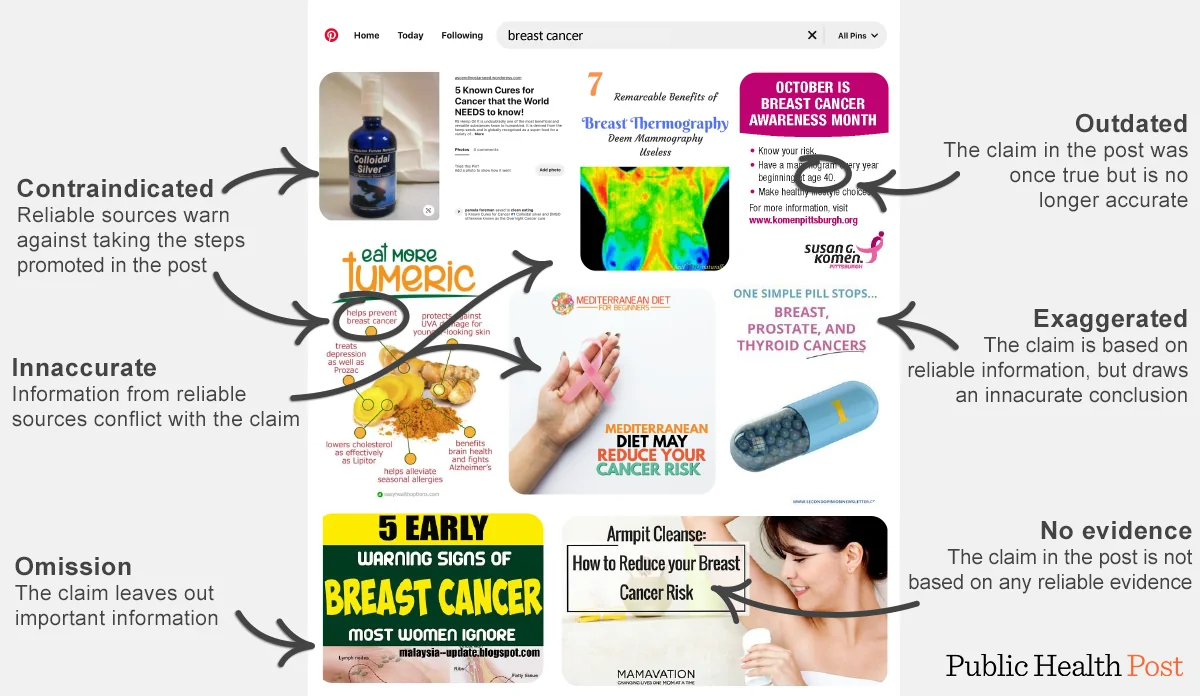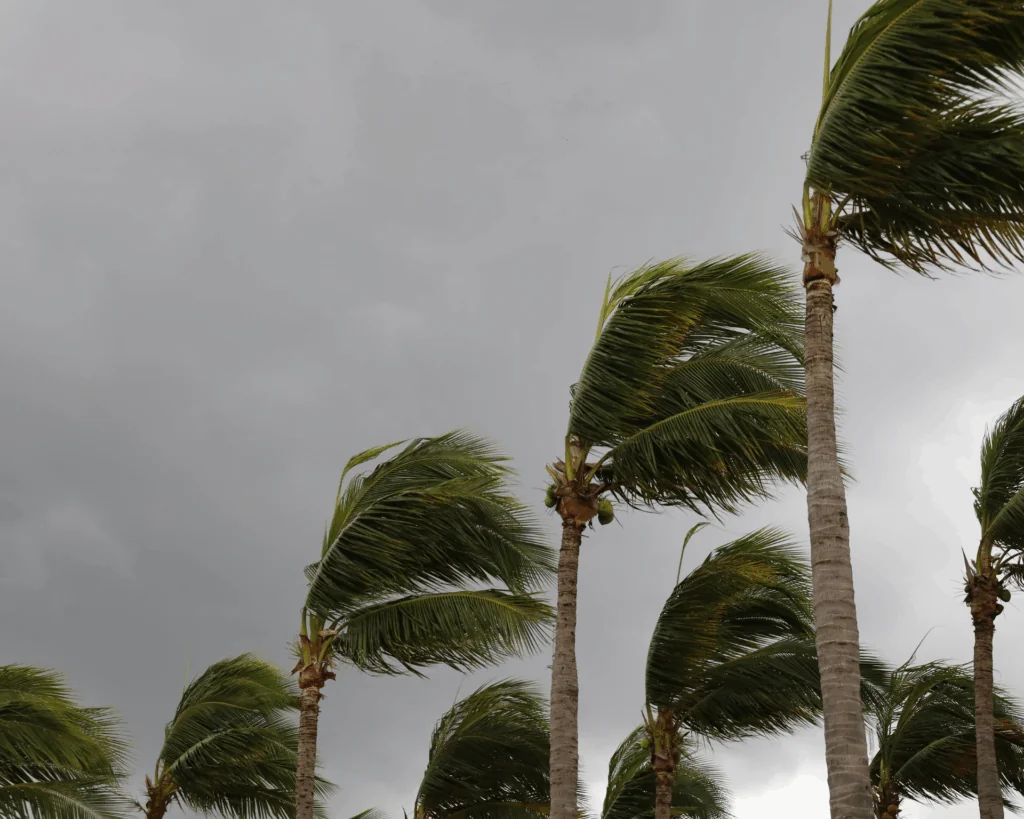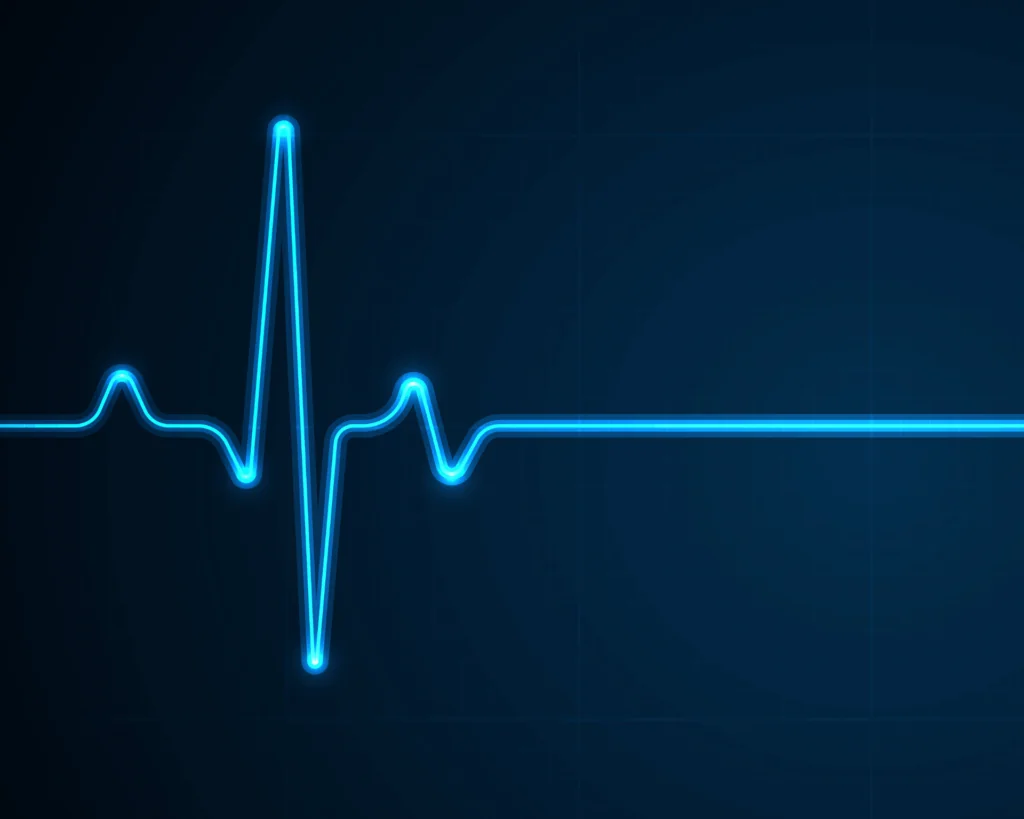Pinning Misinformation
For the over 322 million daily users on Pinterest, deciphering the accuracy of health advice can range from challenging to nearly impossible.

Read Time: 2 minutes
Published:
Pinterest is a popular social media platform for finding and sharing content related to diet, wellness, and alternative medicine. For the over 322 million daily users on Pinterest, deciphering the accuracy of health advice can range from challenging to nearly impossible. Many posts intertwine misinformation with partial truths, making it difficult to parse out accurate information.
Pinterest posts regarding breast cancer prevention, diagnosis, and treatment are a common source of health misinformation. Tamar Wilner and Avery Holten analyzed 800 posts containing claims related to breast cancer. They researched each claim, noted any time there was misinformation present, and categorized the posts into different types of misinformation, whether claims were inaccurate, exaggerated, outdated, or partially true but misleading.
Nineteen percent of the breast cancer claims had no supporting evidence. For instance, multiple posts claimed that antiperspirants can cause breast cancer. The National Cancer Institute affirms there is no association between deodorant and breast cancer risk.
Fifty-five percent of posts contained exaggerated claims. For example, research on the potential medicinal benefits of probiotics is in early stages. Any claim that they prevent or treat cancer is a misleading exaggeration. Promotions falling into this category include claims about the benefits of flaxseed, turmeric, dandelions, pomegranates, green tea, vitamin D, and insulin-like growth factor 1 (IGF-1).
Two-percent of the claims were dangerously inaccurate. Colloidal silver does not cure breast cancer but can cause skin discoloration, seizures, and kidney damage. Turmeric is currently being studied for potential health benefits, but there is no evidence to date that it improves breast cancer outcomes. Rather, consumption of turmeric can cause dangerous side effects including allergic reactions and toxicity.
Pinterest users should remain wary of health advice promoted on social media. Although tempting to believe, suggestions to eat a certain food or avoid a particular product are more often false promises than effective methods of treatment or prevention. It is important to always check reliable sources, such as the National Cancer Institute or American Cancer Society, as well as consult with a licensed health care provider before making decisions related to breast cancer prevention or treatment.
Databyte via Tamar Wilner and Avery Holton, 2020: Breast Cancer Prevention and Treatment: Misinformation on Pinterest, 2018. American Journal of Public Health 110, S300-S304. Visualization by Tasha McAbee.



